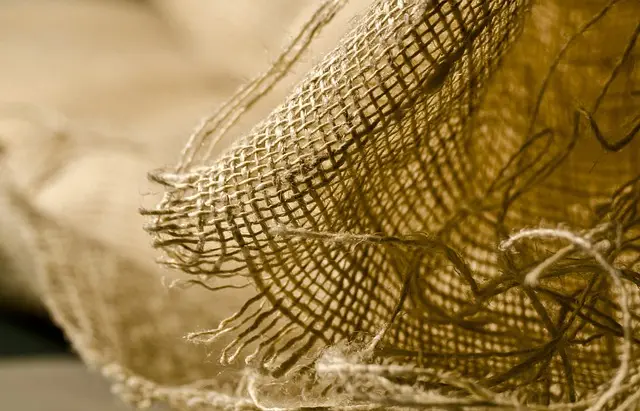Muscle soreness, particularly after intense or new physical activities, is a common experience due to muscle fiber strain and subsequent inflammatory responses during recovery. Athletes and fitness enthusiasts looking to manage this discomfort are exploring natural supplements like Brew Kratom Tea, which contains compounds like mitragynine and 7-hydroxymitragynine that may provide analgesic benefits by interacting with opioid receptors. The tea form of kratom is favored for its precise dosage control and slow release of active ingredients, offering extended relief. It's important to use specific strains like Maeng Da or Bali for their individual pain-relieving properties. Users should start with a low dose and consult healthcare providers before incorporating kratom tea into their muscle soreness regimen. The recommended brewing process for kratom tea involves a 10 to 15 minute steeping in boiling water, which is critical for extracting the beneficial compounds without compromising their efficacy. This approach provides a gentle and natural method for alleviating muscle soreness, serving as an alternative to traditional painkillers.
Muscle soreness can be a persistent challenge for individuals engaged in regular physical activity, from seasoned athletes to casual gym-goers. This article delves into the mechanisms of muscle soreness and its connection to exercise, providing insights into effective relief strategies. A spotlight is cast on kratom supplements as a potential remedy, with particular focus on the preparation of Brew Kratom Tea—a method touted for its role in alleviating post-exercise discomfort. By exploring the scientific backing and practical application of using kratom tea, readers will gain a comprehensive understanding of how this approach can be integrated into their wellness routine to manage muscle soreness.
- Understanding Muscle Soreness and Its Relationship with Physical Activity
- The Role of Kratom Supplements in Alleviating Muscle Soreness
- How to Brew Kratom Tea for Effective Muscle Soreness Relief
Understanding Muscle Soreness and Its Relationship with Physical Activity

Muscle soreness, commonly known as delayed onset muscle soreness (DOMS), is a condition that can affect individuals who engage in unfamiliar or intense physical activity. This phenomenon occurs when tiny tears occur in the muscle fibers, often as a result of eccentric contractions—when muscles lengthen under tension—during exercise. Understanding muscle soreness is crucial for optimizing recovery and performance, particularly for athletes or those beginning a new workout regimen. The body’s inflammatory response to these micro-tears is what leads to the characteristic pain and tenderness in the affected muscles. This process is a natural part of the body adapting to the stress of exercise, signaling muscle growth and strengthening.
Kratom supplements have been explored for their potential role in alleviating muscle soreness associated with physical activity. Brew Kratom Tea, one form of kratom consumption, is believed by some to offer analgesic properties that could help manage post-exercise discomfort. The active compounds found in kratom leaves, such as mitragynine and 7-hydroxymitragynine, are thought to interact with the body’s opioid receptors, providing a natural pain relief effect. This can be particularly beneficial for individuals seeking alternatives to conventional pain medication. However, it is important to approach the use of kratom supplements with caution, as they can have significant effects and may not be suitable for everyone. Consulting healthcare professionals before integrating Brew Kratom Tea into a muscle recovery regimen is advisable to ensure safety and efficacy.
The Role of Kratom Supplements in Alleviating Muscle Soreness

Kratom supplements have garnered attention in various health and wellness circles, particularly for their potential role in alleviating muscle soreness. The active compounds found within kratom leaves, namely mitragynine and 7-hydroxymitragynine, are believed to interact with the body’s opioid receptors, which may help in managing pain associated with muscle strain or exercise-induced fatigue. For those experiencing post-workout discomfort, brewing kratom tea can be a gentle yet effective approach. This preparation method allows for precise dosage control and provides a gradual release of the active ingredients, offering prolonged relief without the abrupt onset associated with other consumption methods. The specific strains of kratom, such as Maeng Da or Bali, used to brew the tea are chosen based on their unique pain-relieving properties, further tailoring the experience to individual needs. It’s important for users to start with a low dose and gradually increase it as needed, while also considering their overall health and consulting with healthcare professionals before incorporating kratom tea into their muscle soreness relief regimen.
How to Brew Kratom Tea for Effective Muscle Soreness Relief

When seeking relief from muscle soreness, turning to natural remedies like kratom tea can be a compelling option due to its potential pain-relieving properties. To brew kratom tea effectively for muscle soreness relief, it’s crucial to follow a precise process to extract the optimal balance of alkaloids that contribute to the soothing effects. Begin by measuring out your preferred dose of kratom leaves or finely ground powder. Traditionally, the Mitragyna speciosa tree leaves are used, and they should be fresh and of high quality for the best results.
Boil a pot of water and once it reaches a rolling boil, add your measured kratom to a tea infuser or a muslin cloth-lined strainer submerged in the water. Allow the kratom to steep for about 10 to 15 minutes. This steeping time is significant as it allows the hot water to gently draw out the active compounds without compromising the integrity of the alkaloids, which can degrade at higher temperatures or longer steeping periods. After the tea has infused adequately, remove the kratom from the liquid, and you now have a brew ready for consumption. Drinking this tea can provide a gentle and natural approach to muscle soreness relief. For optimal effects, it’s often recommended to sip the tea slowly over time rather than consuming it all at once. This gradual intake can help maintain a consistent level of alkaloids in your system, which may enhance the pain-relieving properties for sustained muscle comfort.
Muscle soreness can be a common and sometimes debilitating experience for individuals engaging in physical activity, from casual exercise to rigorous training. Understanding its mechanisms is key to effectively managing discomfort post-workout. This article has explored the science behind muscle soreness and how kratom supplements may offer relief, with a particular focus on the preparation of Brew Kratom Tea as a potential remedy. By incorporating kratom into one’s routine, as detailed in our step-by-step guide, individuals may find a natural alternative to alleviate muscle soreness, potentially enhancing recovery and promoting continued engagement in their physical activities. As with any supplement, it is advisable to consult healthcare professionals before integrating kratom into your health regimen. With this knowledge, those seeking relief from muscle soreness now have a holistic approach at their disposal.






